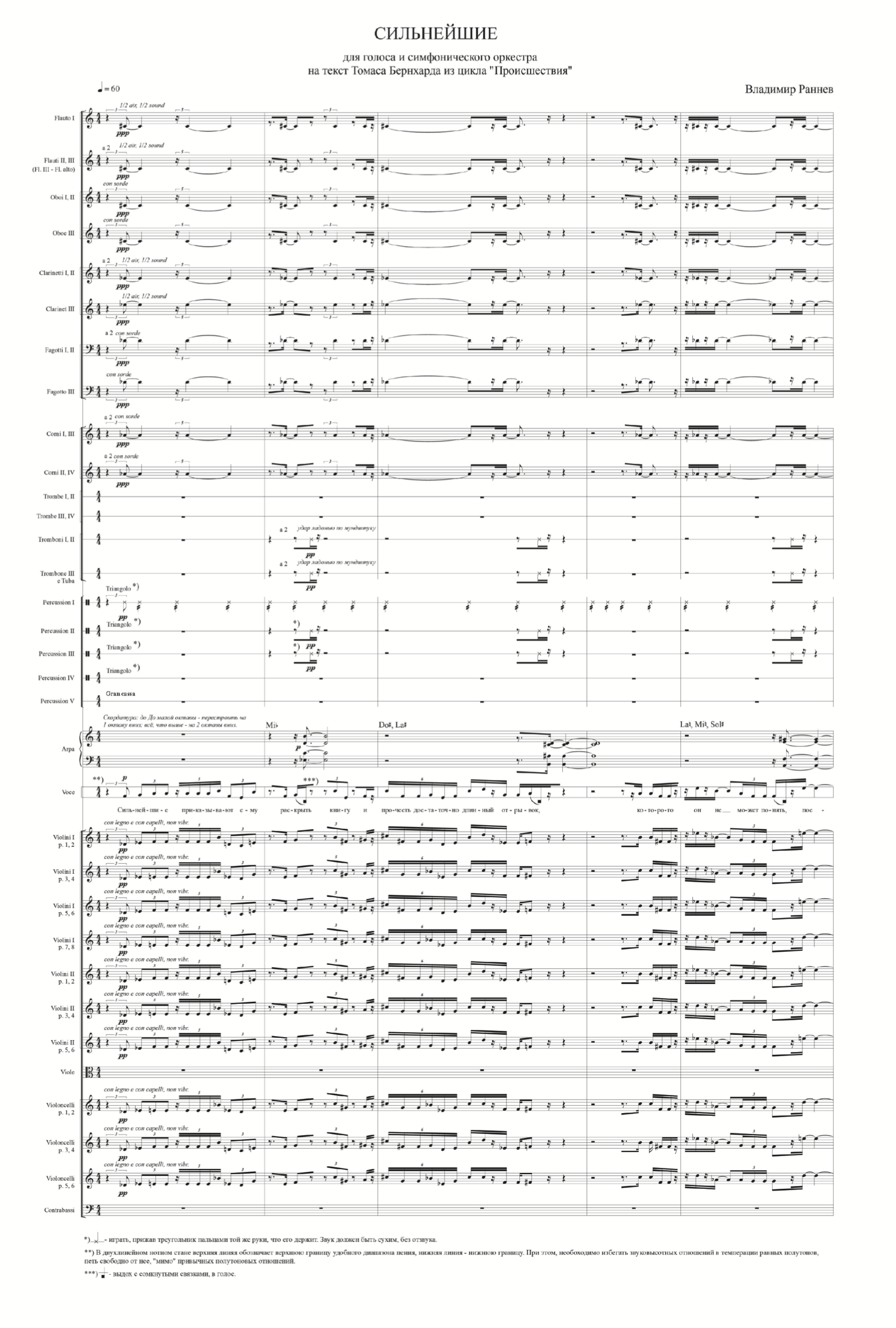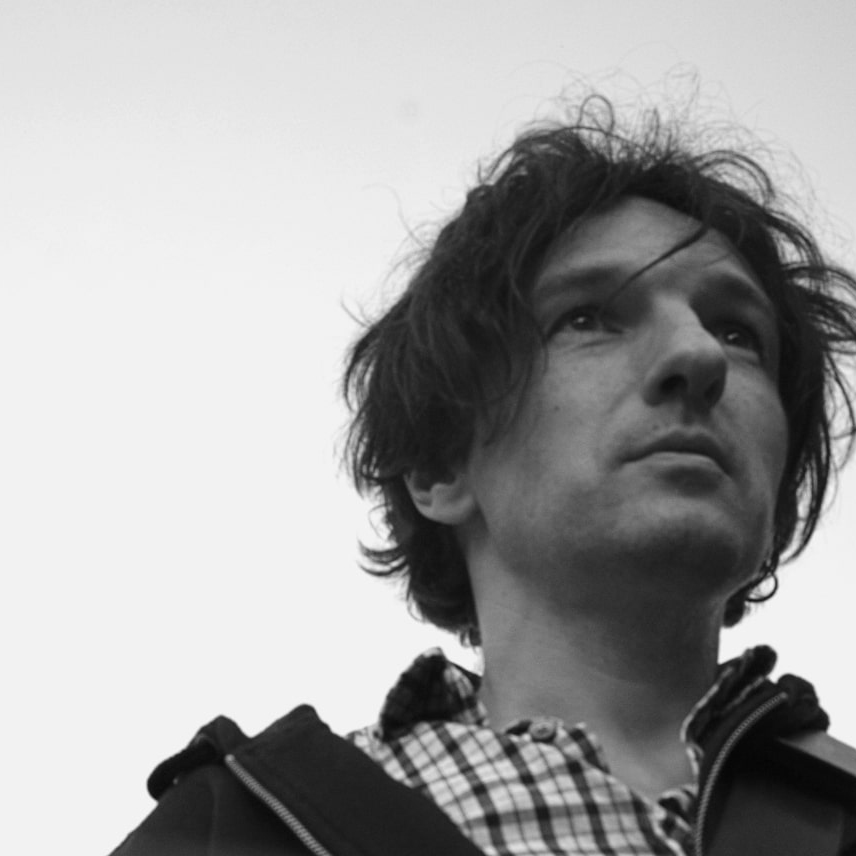Russian Music 2.1 Composition
Strongest
based on a text by Thomas Bernhard from the “Occurrences” cycle for voice and symphony orchestra
"This is a novel and strange experience for me — writing different music for the same text. One and a half years ago, director Evgenia Safonova, video artist Mikhail Ivanov, and I made a video series for the BDT Digital platform, a lockdown project of the Tovstonogov Bolshoi Drama Theatre, which includes six parts from Thomas Bernhard’s Occurrences. Additional episodes from Bernhard’s cycle will be used in the forthcoming work for the vocal ensemble Neue Vokalsolisten Stuttgart. I found a place everywhere for the “Strongest” — but these are three completely different types of music. My colleague Anton Svetlichny has articulated expertly the reasons for my attachment on the portal COLTA.RU in an article about our project for BDT Digital, even though we never talked about this. And now I find this very helpful: I don’t need to try and explain anything, all have to do is cite Anton. I will only allow myself here, without requesting the author’s permission, to replace the word “theatre” with the word “music”, as he was referring to the theatre, whereas I am talking about music. In this case it — that is the music — is for me (the following is a quotation) “a function taken from the medium of our daily existence, a way to see this environment as unequal to itself and find therein latent resources of expression and meaning. In those periods when the living space contracts” — the author is referring here to lockdown restrictions, while I mean the quality of contemporary Russian socio-political reality — music “starts to explore this internal space in all its aspects, to study its attributes — confinement, oppression and statics, sensory deprivation, emasculated communications, shifts in behavioural scenarios, psychological processes, etc.”

Score sample
OTHER WORKS




